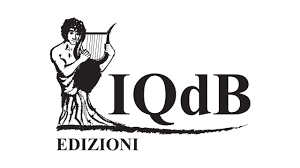Korea’s history is divided into four periods: the Three Kingdoms of Koguryo (37 bc–ad 668), Shilla (57 bc–ad 668), and Paekche (18 bc–ad 660); Unified Shilla (668–935); Koryo (935–1392); and Choson (1392–1910). Kevin O’Rourke’s The Book of Korean Poetry traces Korean poetry from the pre-Shilla era to the end of Korea’s golden poetry period in the Koryo dynasty.There are two poetry traditions in Korea: hanshi (poems by Korean poets in Chinese characters) and vernacular poems, which are invariably songs. Hanshi is a poetry to be read and contemplated; the vernacular is a poetry to be sung and heard. Hanshi was aimed at personal cultivation, vernacular poetry primarily at entertainment. Hanshi was a much more private discipline; vernacular poetry was composed for the most part against a convivial background of wine, music, and dance. In this comprehensive treatment of the poetry of Shilla and Koryo, O’Rourke divides one hundred fifty poems into five sections: Early Songs, Shilla hanshi, Shilla hyangga, Koryo kayo, and Koryo hanshi and shijo. Only a few pre-Shilla poems are extant; O’Rourke features all five. All fourteen extant Shilla hyangga are included. Seventeen major Koryo kayo are featured; only a few short, incantatory pieces that defied translation were excluded. Fourteen of the fewer than twenty Koryo shijo with claims to authenticity are presented. From the vast number of extant hanshi, O’Rourke selected poems with the most intrinsic merit and universal appeal. In addition to introductory essays on the genres of hanshi, hyangga, Koryo kayo, and shijo, O’Rourke interleaves his graceful translations with commentary on the historical backgrounds, poetic forms, and biographical notes on the poets’ lives as well as guides to the original texts, bibliographical materials, and even anecdotes on how the poems came to be written. Along with the translations themselves, O’Rourke’s annotations of the poems make this volume a particularly interesting and important introduction to the scholarship of East Asian literature
Connettivo per la promozione della Poesia in azione ideale con il manifesto di Antonio Leonardo Verri
Connettivo per la promozione della Poesia in azione ideale con il manifesto di Antonio Leonardo Verri
Info
Per aderire al connettivo scrivere a fatefoglidipoesia.poeti2022@gmail.com indicando mail, eventuali siti, o pagine social
Iscriviti a:
Commenti sul post (Atom)
Fate Fogli di Poesia, Poeti! Links
- Associazione Culturale Macarìa
- Associazione Sentiero dei Sogni (progetto ideato da Pietro Berra)
- Caffè Letterario - Lecce
- Compagnia Teatrale Scena Muta di Ivan Raganato
- Comune di Caprarica di Lecce
- Donato Di Poce
- Fondo Verri di Lecce
- Gisella Blanco
- I Quaderni del Bardo Edizioni di Stefano Donno
- il non SENSOVERSO di Francesco Pasca
- La Biennale di Poesia di Alessandria
- La Casa della Poesia di Como
- NavigliPoetrySlam di Annelisa Addolorato
- Ottavio Rossani
- puntoacapo Editrice
- rivista Utsanga diretta da Francesco Aprile e Cristiano Caggiula
- SAMUELE EDITORE
- ScriverePoesia Edizioni
- Vittorino Curci
Cosa fa il collettivo/connettivo Fate Fogli di Poesia, Poeti!
Il Fondo Verri di Lecce, I Quaderni del Bardo Edizioni di Stefano Donno, La Casa della Poesia di Como, costituiscono il collettivo/ connettivo per la ricerca, promozione e diffusione della poesia nazionale e internazionale FATE FOGLI DI POESIA, POETI! In azione ideale con il manifesto di Antonio Leonardo Verri
Il connettivo per la ricerca, promozione e diffusione della poesia nazionale e internazionale FATE FOGLI DI POESIA, POETI! è aperto all'inclusione su espresso desiderio e comunicazione dei richiedenti, di fondazioni, associazioni, aziende, enti pubblici e privati, attori sociali di ogni ordine e grado)
I componenti del Connettivo Fate Fogli di Poesia, Poeti!
Casa della Poesia di Como, Fondo Verri di Lecce, I Quaderni del Bardo Edizioni di Stefano Donno, Comune di Caprarica di Lecce, Associazione Sentiero dei Sogni, Compagnia Teatrale Scena Muta di Ivan Raganato, Associazione Culturale Macarìa, Gisella Blanco, ScriverePoesia Edizioni, Samuele Editore, Caffè Letterario - Lecce, puntoacapo Editrice, Ottavio Rossani, la rivista Utsanga diretta da Francesco Aprile e Cristiano Caggiula, Donato Di Poce, La Biennale di Poesia di Alessandria, NavigliPoetrySlam di Annelisa Addolorato, Vittorino Curci, Francesco Pasca, Marcello Buttazzo, Giuseppe Zilli, Alessio Arena, Alessandra Paradisi



Nessun commento:
Posta un commento